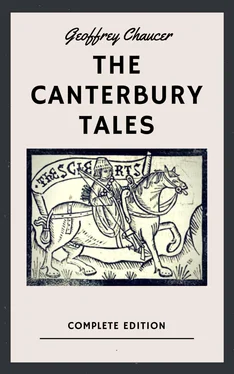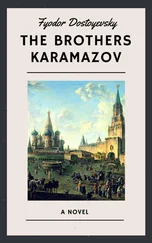Geoffrey Chaucer - Geoffrey Chaucer - The Canterbury Tales (English Edition)
Здесь есть возможность читать онлайн «Geoffrey Chaucer - Geoffrey Chaucer - The Canterbury Tales (English Edition)» — ознакомительный отрывок электронной книги совершенно бесплатно, а после прочтения отрывка купить полную версию. В некоторых случаях можно слушать аудио, скачать через торрент в формате fb2 и присутствует краткое содержание. Жанр: unrecognised, на английском языке. Описание произведения, (предисловие) а так же отзывы посетителей доступны на портале библиотеки ЛибКат.
- Название:Geoffrey Chaucer: The Canterbury Tales (English Edition)
- Автор:
- Жанр:
- Год:неизвестен
- ISBN:нет данных
- Рейтинг книги:3 / 5. Голосов: 1
-
Избранное:Добавить в избранное
- Отзывы:
-
Ваша оценка:
- 60
- 1
- 2
- 3
- 4
- 5
Geoffrey Chaucer: The Canterbury Tales (English Edition): краткое содержание, описание и аннотация
Предлагаем к чтению аннотацию, описание, краткое содержание или предисловие (зависит от того, что написал сам автор книги «Geoffrey Chaucer: The Canterbury Tales (English Edition)»). Если вы не нашли необходимую информацию о книге — напишите в комментариях, мы постараемся отыскать её.
Th' arc of his artificial day had run
The fourthe part, and half an houre more;
And, though he were not deep expert in lore,
He wist it was the eight-and-twenty day
Of April, that is messenger to May;
And saw well that the shadow of every tree
Was in its length of the same quantity
That was the body erect that caused it;
And therefore by the shadow he took his wit."
Geoffrey Chaucer: The Canterbury Tales (English Edition) — читать онлайн ознакомительный отрывок
Ниже представлен текст книги, разбитый по страницам. Система сохранения места последней прочитанной страницы, позволяет с удобством читать онлайн бесплатно книгу «Geoffrey Chaucer: The Canterbury Tales (English Edition)», без необходимости каждый раз заново искать на чём Вы остановились. Поставьте закладку, и сможете в любой момент перейти на страницу, на которой закончили чтение.
Интервал:
Закладка:
From books the Editor has derived valuable help; as from Mr Cowden Clarke's revised modern text of The Canterbury Tales, published in Mr Nimmo's Library Edition of the English Poets; from Mr Wright's scholarly edition of the same work; from the indispensable Tyrwhitt; from Mr Bell's edition of Chaucer's Poem; from Professor Craik's "Spenser and his Poetry," published twenty-five years ago by Charles Knight; and from many others. In the abridgement of the Faerie Queen, the plan may at first sight seem to be modelled on the lines of Mr Craik's painstaking condensation; but the coincidences are either inevitable or involuntary. Many of the notes, especially of those explaining classical references and those attached to the minor poems of Chaucer, have been prepared specially for this edition. The Editor leaves his task with the hope that his attempt to remove artificial obstacles to the popularity of England's earliest poets, will not altogether miscarry.
LIFE OF GEOFFREY CHAUCER.
NOT in point of genius only, but even in point of time, Chaucer may claim the proud designation of "first" English poet. He wrote "The Court of Love" in 1345, and "The Romaunt of the Rose," if not also "Troilus and Cressida," probably within the next decade: the dates usually assigned to the poems of Laurence Minot extend from 1335 to 1355, while "The Vision of Piers Plowman" mentions events that occurred in 1360 and 1362 — before which date Chaucer had certainly written "The Assembly of Fowls" and his "Dream." But, though they were his contemporaries, neither Minot nor Langland (if Langland was the author of the Vision) at all approached Chaucer in the finish, the force, or the universal interest of their works and the poems of earlier writer; as Layamon and the author of the "Ormulum," are less English than Anglo-Saxon or Anglo- Norman. Those poems reflected the perplexed struggle for supremacy between the two grand elements of our language, which marked the twelfth and thirteenth centuries; a struggle intimately associated with the political relations between the conquering Normans and the subjugated Anglo-Saxons. Chaucer found two branches of the language; that spoken by the people, Teutonic in its genius and its forms; that spoken by the learned and the noble, based on the French Yet each branch had begun to borrow of the other — just as nobles and people had been taught to recognise that each needed the other in the wars and the social tasks of the time; and Chaucer, a scholar, a courtier, a man conversant with all orders of society, but accustomed to speak, think, and write in the words of the highest, by his comprehensive genius cast into the simmering mould a magical amalgamant which made the two half-hostile elements unite and interpenetrate each other. Before Chaucer wrote, there were two tongues in England, keeping alive the feuds and resentments of cruel centuries; when he laid down his pen, there was practically but one speech — there was, and ever since has been, but one people.
Geoffrey Chaucer, according to the most trustworthy traditions- for authentic testimonies on the subject are wanting — was born in 1328; and London is generally believed to have been his birth-place. It is true that Leland, the biographer of England's first great poet who lived nearest to his time, not merely speaks of Chaucer as having been born many years later than the date now assigned, but mentions Berkshire or Oxfordshire as the scene of his birth. So great uncertainty have some felt on the latter score, that elaborate parallels have been drawn between Chaucer, and Homer — for whose birthplace several cities contended, and whose descent was traced to the demigods. Leland may seem to have had fair opportunities of getting at the truth about Chaucer's birth — for Henry VIII had him, at the suppression of the monasteries throughout England, to search for records of public interest the archives of the religious houses. But it may be questioned whether he was likely to find many authentic particulars regarding the personal history of the poet in the quarters which he explored; and Leland's testimony seems to be set aside by Chaucer's own evidence as to his birthplace, and by the contemporary references which make him out an aged man for years preceding the accepted date of his death. In one of his prose works, "The Testament of Love," the poet speaks of himself in terms that strongly confirm the claim of London to the honour of giving him birth; for he there mentions "the city of London, that is to me so dear and sweet, in which I was forth growen; and more kindly love," says he, "have I to that place than to any other in earth; as every kindly creature hath full appetite to that place of his kindly engendrure, and to will rest and peace in that place to abide." This tolerably direct evidence is supported — so far as it can be at such an interval of time — by the learned Camden; in his Annals of Queen Elizabeth, he describes Spencer, who was certainly born in London, as being a fellow-citizen of Chaucer's — "Edmundus Spenserus, patria Londinensis, Musis adeo arridentibus natus, ut omnes Anglicos superioris aevi poetas, ne Chaucero quidem concive excepto, superaret." <1> The records of the time notice more than one person of the name of Chaucer, who held honourable positions about the Court; and though we cannot distinctly trace the poet's relationship with any of these namesakes or antecessors, we find excellent ground for belief that his family or friends stood well at Court, in the ease with which Chaucer made his way there, and in his subsequent career.
Читать дальшеИнтервал:
Закладка:
Похожие книги на «Geoffrey Chaucer: The Canterbury Tales (English Edition)»
Представляем Вашему вниманию похожие книги на «Geoffrey Chaucer: The Canterbury Tales (English Edition)» списком для выбора. Мы отобрали схожую по названию и смыслу литературу в надежде предоставить читателям больше вариантов отыскать новые, интересные, ещё непрочитанные произведения.
Обсуждение, отзывы о книге «Geoffrey Chaucer: The Canterbury Tales (English Edition)» и просто собственные мнения читателей. Оставьте ваши комментарии, напишите, что Вы думаете о произведении, его смысле или главных героях. Укажите что конкретно понравилось, а что нет, и почему Вы так считаете.












